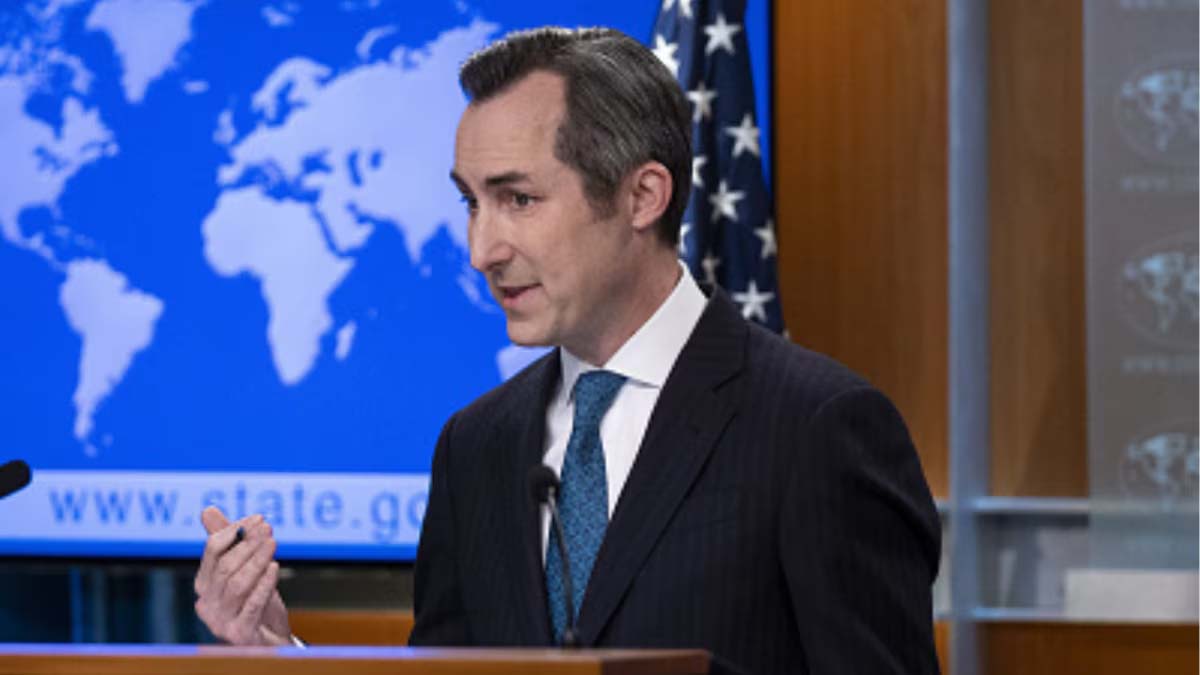U.S. Remarks on Kejriwal’s Arrest: Silence on Pakistan Probe.
<p>During a recent press briefing, Mathew Miller, the spokesperson for the US State Department, found himself in a rather peculiar predicament when a journalist queried him about the department’s stance on the arrest of Delhi’s Chief Minister, Arvind Kejriwal, versus its silence on the detention of opposition leaders in Pakistan. When pressed on the apparent […]</p>

U.S. Remarks on Kejriwal’s Arrest: Silence on Pakistan Probe.
During a recent press briefing, Mathew Miller, the spokesperson for the US State Department, found himself in a rather peculiar predicament when a journalist queried him about the department’s stance on the arrest of Delhi’s Chief Minister, Arvind Kejriwal, versus its silence on the detention of opposition leaders in Pakistan.
When pressed on the apparent disparity in treatment between Indian and Pakistani political figures, Miller responded, “I must respectfully disagree with that portrayal. We have consistently emphasized our desire to see all individuals in Pakistan treated in accordance with the principles of the rule of law and with due regard for human rights, just as we advocate for in any nation across the globe.”
Arvind Kejriwal, the Chief Minister of Delhi, was apprehended by federal investigative authorities on March 21 in connection to a money laundering inquiry related to his administration’s now-defunct excise policy. Kejriwal remains in custody pending judicial proceedings until April 15.
In a strongly worded statement issued on Tuesday, S Jaishankar, India’s Minister of External Affairs, cautioned against unwarranted external commentary on the country’s internal affairs, warning that any such interference would be met with a robust response.
“In some instances, individuals from international organizations have been questioned about Kejriwal’s detention, and they have provided certain responses. However, it must be candidly acknowledged that such actions reflect longstanding patterns, which are not conducive to constructive discourse,” remarked Jaishankar.
He elaborated, “There exists a certain decorum among nations. As sovereign entities, we should refrain from meddling in each other’s domestic matters or passing judgment on one another’s political landscapes.”
Jaishankar reiterated that “should any foreign entity choose to opine on India’s political landscape, they should be prepared for a firm rebuttal from us, as has been evidenced. It is our sincere plea to all nations worldwide to hold their perspectives regarding global affairs, but refrain from intruding upon the internal affairs of other sovereign nations, particularly in such circumstances.”








